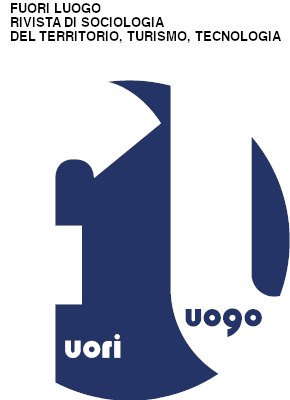Sustainable Development and Tourism: the Case of Lanzarote Island in the Light of the 2030 Agenda
Abstract
Sustainability is an issue whose importance has steadily increased in the last decades, becoming more and more a priority than just a set of good practices. This is proved by the charts and treaties that have been ratified since the end of the 80s, starting with the UN’s “Brundtland Report”[1] and its first definition of “sustainable development”, up to the present, with the “2030 Agenda for sustainable development” issued in 2015: a set of 17 goals that all adhering countries should pursue to assure a sustainable future for the generations to come. In the meanwhile, in 1995, the “Charter for sustainable tourism” was published in Lanzarote, one of the eight Canary Islands, declaring that tourism undoubtedly plays a key role in contributing to sustainability, since it can promote destinations and offer services that pay attention to the local environment, economy, culture and society, in other words, to “heritage”. It did not happen by chance that Lanzarote was chosen as the cradle of sustainable tourism: although its fame spread much later than other islands of the archipelago, its development was carefully planned, carried out and managed to prevent any damage to local culture and landscape; it was thanks to the prominent figure of the artist César Manrique and his idea of a network of tourist sites, the Centers of Art, Culture and Tourism (also known as CACT), that Lanzarote has become an outstanding example of a sustainable tourist destination. In this article, we are going to explore the case study of Lanzarote and its seven Centers of Art, Culture and Tourism, opened between 1968 and 1990, intending to prove that they were a pioneering example of sustainability long before the “Brundtland Report” was issued and that they still are, thanks to the current management company. Moreover, we will support our argument by considering the 17 goals of the “2030 Agenda for sustainable development”, as well as the 12 goals for sustainable tourism issued by the Wto, proving that this network of tourist sites meets many of them, and continues to improve itself.
Downloads
Copyright (c) 2021 Isabella Crespi, Annalisa Salvi

This work is licensed under a Creative Commons Attribution 4.0 International License.




